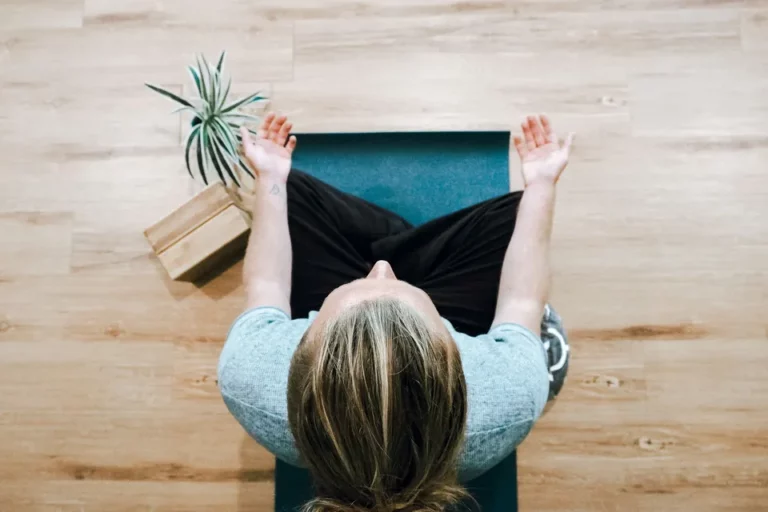The Power of Meditation: A Guide to Its Numerous Health Benefits
In today’s fast-paced world, stress and anxiety have become a part of our daily lives. With the constant pressure to perform and meet deadlines, it’s easy to get lost in the chaos and forget to take care of ourselves. However, there is a proven solution that has been used for centuries to combat stress and promote overall well-being – meditation.
Meditation is a simple yet powerful practice that allows us to quiet our minds and focus on the present moment. It has numerous health benefits, including reducing stress and anxiety, improving sleep quality, and boosting the immune system.
In this guide, we will explore the power of meditation and its various health benefits. Whether you’re a beginner or an experienced meditator, this guide will provide you with all the information you need to start incorporating meditation into your daily routine and reap its many benefits. So, let’s dive in and discover the transformative power of meditation!
Este artículo también está disponible en Español
Understanding the Science Behind Meditation
Meditation is a practice that has been used for centuries to promote overall well-being. But what exactly happens in our brain and body when we meditate? Research has shown that meditation can positively impact our brain structure and function.
For example, a study published in the journal “Frontiers in Human Neuroscience” found that long-term meditation can increase the thickness of the prefrontal cortex, which is responsible for decision-making, attention, and self-control.
Meditation has also been found to reduce the activity in the amygdala, which is the part of the brain that is responsible for the fight-or-flight response. This means that meditation can help us reduce our stress and anxiety levels. Moreover, meditation has been shown to increase the production of endorphins, which are the body’s natural painkillers.
Physical Health Benefits of Meditation

Meditation is not just good for our mental health; it also has numerous physical health benefits. One of the most significant benefits of meditation is that it can help lower our blood pressure. A study published in the “Journal of Alternative and Complementary Medicine” found that meditation can significantly reduce both systolic and diastolic blood pressure.
Meditation has also been found to boost our immune system. According to a study published in the “Annals of the New York Academy of Sciences”, meditation can increase the activity of natural killer cells, which are the white blood cells that help fight off viruses and tumors.
Additionally, meditation has been found to decrease the levels of cortisol, which is a hormone that is released in response to stress. High levels of cortisol are associated with a weakened immune system, so reducing cortisol levels can help boost our immune system and keep us healthy.
Mental Health Benefits of Meditation

Meditation is perhaps best known for its mental health benefits. One of the most significant benefits of meditation is that it can help reduce our stress and anxiety levels. A study published in the journal “Psychosomatic Medicine” found that mindfulness meditation can reduce the symptoms of anxiety and depression in people with generalized anxiety disorder.
Meditation can also help improve our mood and increase our feelings of well-being. A study published in the “Journal of Positive Psychology” found that people who meditated for just 15 minutes a day for three weeks experienced an increase in positive emotions such as joy, contentment, and happiness.
The Impact of Meditation on Stress and Anxiety
Stress and anxiety are two of the most common mental health issues that people face today. Meditation can help reduce our stress and anxiety levels by allowing us to focus on the present moment and quiet our minds. A study published in the “Journal of Clinical Psychology” found that mindfulness meditation can reduce symptoms of anxiety and depression in people with generalized anxiety disorder.
Meditation can also help reduce our stress levels by reducing the levels of cortisol in our bodies. Cortisol is a hormone that is released in response to stress, and high levels of cortisol are associated with a weakened immune system, weight gain, and other health problems. By reducing our cortisol levels, meditation can help us feel more relaxed and calmer.
Improving Focus and Concentration Through Meditation

In today’s world, we are constantly bombarded with distractions. Whether it’s social media, email notifications, or other interruptions, it can be challenging to stay focused and productive. Fortunately, meditation can help improve our focus and concentration.
A study published in “Nature” found that meditation can improve our working memory, which is the ability to hold and manipulate information in our minds. Meditation can also improve our ability to switch between tasks and can increase our attention span.
Meditation for Better Sleep
Sleep is essential for our overall health and well-being, but many of us struggle to get enough quality sleep. Meditation can help improve the quality of our sleep by reducing our stress levels and calming our minds.
A study published in the “Journal of the American Medical Association Internal Medicine” found that mindfulness meditation can improve the quality of sleep in people with insomnia. Meditation can also help reduce the symptoms of sleep disorders such as sleep apnea and restless leg syndrome.
Different Types of Meditation Techniques to Try

There are many different types of meditation techniques to choose from, each with its unique benefits. Here are a few of the most popular meditation techniques:
- Mindfulness meditation: This technique involves paying attention to the present moment with curiosity and openness. It helps us to become more aware of our thoughts and feelings and to accept them without judgment. Mindfulness meditation can reduce stress, enhance well-being, and improve cognitive performance.
- Loving-kindness meditation: This technique involves generating and sending feelings of love, kindness, and compassion towards ourselves and others. It helps us to cultivate positive emotions, heal emotional wounds, and foster empathy and altruism. Loving-kindness meditation can boost happiness, reduce depression, and increase social connection.
- Transcendental meditation: This technique involves silently repeating a mantra that is given by a certified teacher. It helps us to transcend the ordinary level of consciousness and achieve a state of deep relaxation and inner peace. Transcendental meditation can lower blood pressure, improve mental health, and increase creativity.
- Body scan meditation: This technique involves scanning each part of the body with awareness and noticing any sensations that arise. It helps us to connect with our physical sensations, release tension, and relax the body and mind. Body scan meditation can improve sleep quality, reduce pain, and enhance mindfulness.
Tips for Getting Started with Meditation

If you’re new to meditation, it can be challenging to know where to start. Here are a few tips to help you get started:
- Start small: Don’t try to meditate for too long at first, as this can be frustrating and discouraging. Start with just a few minutes of meditation each day and gradually increase the time as you become more comfortable. You can also try different meditation techniques to find what works best for you.
- Find a quiet space: Choose a quiet space where you can meditate without distractions. This can be a room in your home, a park, or any place where you feel calm and relaxed. You can also use headphones or earplugs to block out any noise.
- Use a timer: Set a timer to help you stay focused during your meditation practice. This way, you don’t have to worry about checking the clock or losing track of time. You can use a simple timer, an app, or a guided meditation audio to help you meditate.
- Be patient: Meditation is a skill that takes time and practice to develop, so be patient with yourself. Don’t expect to achieve perfect concentration or enlightenment right away. Instead, focus on the process and the benefits of meditation, such as reducing stress, improving mood, and enhancing well-being.
Incorporating Meditation into Your Daily Routine

Incorporating meditation into your daily routine can have numerous benefits for your overall health and well-being. Here are a few tips to help you make meditation a part of your daily routine:
- Schedule it: Choose a specific time each day to meditate and add it to your schedule. This can help you prioritize meditation and make it a part of your daily routine. You can also set reminders or alarms to help you remember to meditate.
- Be consistent: Try to meditate at the same time each day to establish a consistent routine. This can help you create a habit of meditation and make it easier to stick to it. You can also choose a time that suits your lifestyle and preferences, such as in the morning, during lunch break, or before bed.
- Make it a habit: Make meditation a habit by practicing it regularly and making it a part of your daily routine. You can link meditation to other habits or activities that you do every day, such as drinking coffee or taking a shower. This can help you associate meditation with something positive and enjoyable.
Conclusion
Meditation is a simple yet powerful practice that has numerous health benefits. It can help reduce our stress and anxiety levels, improve our sleep quality, boost our immune system, and improve our overall well-being.
Whether you’re a beginner or an experienced meditator, there are many different types of meditation techniques to choose from. By incorporating meditation into your daily routine, you can start reaping the many benefits of this ancient practice.
So, take a few minutes each day to quiet your mind and focus on the present moment – your body and mind will thank you for it!




